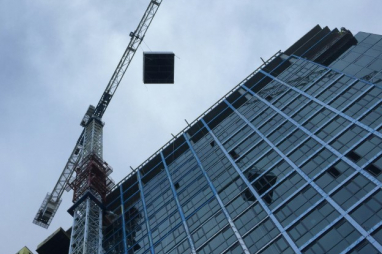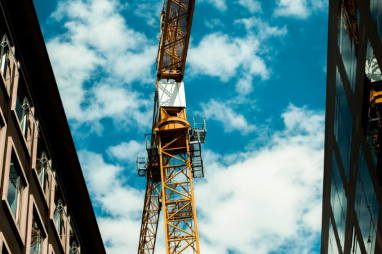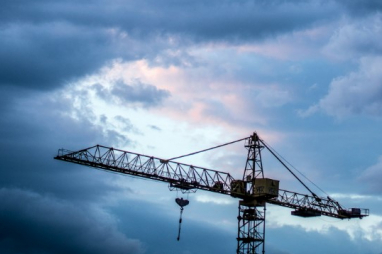- dolce gabbana portofino lace up sneakers item
- air jordan 1 low outlet
- Украина #117281285 , missy elliot adidas tracksuit pants , Женский спортивный костюм adidas — цена 989 грн в каталоге Спортивные костюмы ✓ Купить женские вещи по доступной цене на Шафе
- Aleali May x Air Jordan 1 Kollaboration , Nike jordan retro 4 military black premium — цена 2200 грн в каталоге Кроссовки ✓ Купить мужские вещи по доступной цене на Шафе , Украина #139095753
- nike huarache 2004 black mustang gt manual South Beach CZ0328 - 400 2021 Release Date Info - nike huarache 2004 black mustang gt manual , IetpShops
- Air Jordan 1 Blue Chill Womens CD0461 401 Release Date 4
- Nike Blazer Mid 77 Catechu DC9265 101 Release Date
- kids air jordan
- best nike basketball shoes
- Air Jordan 3 Rust Pink CK9246 600
- Home
- News and analysis
- Info hubs
- Events
- Video
- Case Studies
- About us
- Magazine
- Advertising
Produced for the industry by the Association for Consultancy and Engineering
News
Construction growth eases to three-month low, PMI results reveal

The UK construction sector faces continued challenges from labour and supply shortages, as well as the spread of the Covid-19 Omicron variant, but overall confidence remains upbeat for the year ahead.
That’s according to the latest monthly PMI results for December, which saw another solid increase in business activity across the UK construction sector, although the rate of expansion slipped to its lowest since September.
The survey found that weakness centred on commercial and civil engineering, house building regained its place as the fastest growing category and, more positively, supplier delays are now the least widespread since November 2020.
The number of construction firms reporting supplier delays dropped from 47% in November to 34% in December. Meanwhile, around 5% of the survey panel reported shorter lead times among vendors (up from 4%).
The headline seasonally adjusted IHS Markit/CIPS UK Construction PMI® Total Activity Index posted 54.3 in December, to remain above the crucial 50.0 no-change threshold. However, the latest reading was down from 55.5 in November and signalled the weakest rate of expansion for three months.
Residential construction activity saw the strongest growth (index at 55.3) and was the only category to gain momentum in December. Commercial building lost its position as the best performing segment, with the recovery easing to its lowest since September (index at 53.6).Meanwhile, civil engineering activity decreased slightly at the end of 2021 (index at 49.1), which ended a nine-month period of expansion.
The latest rise in overall new order volumes was the strongest since August. Higher levels of new work have now been recorded for 19 consecutive months.
Higher fuel, energy and raw material prices continued to push up average cost burdens across the construction sector in December. However, the overall rate of inflation eased for the fourth month running to its lowest since March.
Looking ahead, just over half of the survey panel (51%) forecast a rise in business activity during 2022, while only 9% predict a decline. Although signalling upbeat sentiment for the year ahead, the degree of optimism was the joint-lowest reported since January 2021.
Tim Moore, director at IHS Markit, which compiles the survey said: "UK construction companies ended last year on a slightly weaker footing as renewed pandemic restrictions held back the recovery, especially in commercial work and civil engineering. Some firms commented on disruption from rising Covid-19 cases, while others noted a lack of new work to sustain the rapid growth rates seen earlier in 2021.”
Duncan Brock, group director at the Chartered Institute of Procurement & Supply, said: "Though the overall index moved down slightly in December there was light at the end of the tunnel for builders in terms of the strongest order numbers since August, reduced pressure on business costs and some improved delivery times for essential materials.”
Guto Davies, head of policy at the Association for Consultancy and Engineering, said: “The wider industry will be pleased to see supply delays reduced in December. With a new set of rules at our borders coming into play from January 2022 owing to our departure from the EU, we will need to keep a close eye on the issue. Given the stop/start nature of our recovery to date, it will come as no surprise that respondents have mixed views on the outlook for the year ahead.
“Our members and sector should remain upbeat, however. The publication of the Integrated Rail Plan and the Construction and Infrastructure Pipeline bring added certainty perhaps lacking in other areas of the construction industry.”
Max Jones, director in Lloyds Bank’s infrastructure and construction team, said: “Contractors hope that the issues they contended with last year subside in 2022 but feel, on the whole, they navigated a difficult period well. The focus now is on growth supported by increased sustainability, greater workforce diversity and new technologies that together will future proof the industry for years to come.”
Jan Crosby, head of infrastructure, building and construction at KPMG UK, said: “The sector has shown great resilience through the events of the past two years, remaining robust despite having seemingly endless obstacles and pressures to contend with. And it will need to keep doing so as we enter 2022, with the impact of the ongoing Omicron variant, supply chain issues and skills shortages continuing to create uncertainty in the months ahead.
“Yet there is also plenty for the industry to be positive about. Contractors are looking to the UK Infrastructure Bank to help bolster pipelines and ongoing strong demand in the housing market is propping up prices and giving builders extra incentive to ramp up the delivery of new homes.”
Mark Robinson, group chief executive at SCAPE, said: “The construction industry has had every challenge thrown at it over the past 12 months and this looks set to continue in the year ahead. As with other sectors, rising Omicron case numbers will further squeeze the supply of labour, while ongoing concerns around inflation and continued supply chain disruption are likely to affect the speed at which future projects get off the ground.
“But the outlook for 2022 overall is more positive than last year. It has the potential to be an era-defining year for the sector as it strives to deliver infrastructure with a clear focus on community value - whether social, environmental or economic. Backed by the government’s procurement standards revolution, public sector projects must become a consistent beacon of best-practice for the wider industry to follow.”
Joe Sullivan, partner at MHA, said: “The availability of labour is now the number one issue within the UK construction sector, with wages continuing to rise. In addition, the spread of the Covid-19 Omicron variant has inhibited progress on building sites, dampening output and making planning even more difficult. However, despite these challenges, confidence in the construction sector is still quite strong. Although certain decisions may be deferred until the Omicron variant abates, all indications are that plenty of work is available as we begin 2022.”
PMI data was collected between 6-22 December 2021.





